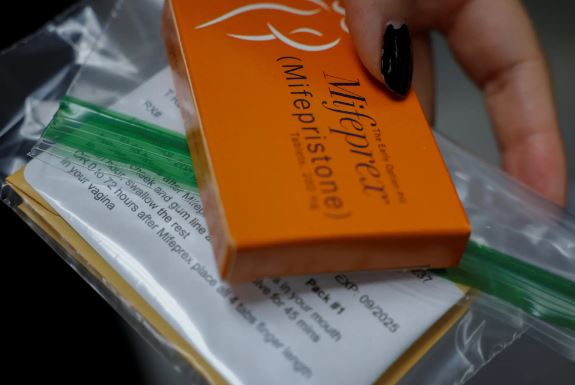Louisiana is set to become the first state to classify abortion pills, mifepristone and misoprostol, as dangerous controlled substances. A new bill would make possessing these medications without a prescription a criminal offense, punishable by fines and up to five years in jail. The measure passed the state’s Republican-controlled House of Representatives and is expected to be signed into law by Governor Jeff Landry. This classification contradicts federal guidelines, as the FDA considers these medications safe and without potential for abuse. Pregnant women would be exempt from penalties under this legislation.
The proposed bill, which designates the abortion pills mifepristone and misoprostol as Schedule IV drugs—similar to Xanax, Ambien, and Valium—passed the state’s Republican-controlled House of Representatives on Tuesday with a vote of 63 to 29. If the Senate concurs, Governor Jeff Landry, a Republican and staunch opponent of abortion, is expected to sign it into law.
This legislation diverges significantly from the federal government’s stance. The FDA does not classify mifepristone and misoprostol as drugs with potential for abuse or dependence, and extensive medical research has consistently shown them to be safe. However, under this new bill, possessing these pills without a prescription in Louisiana could lead to hefty fines and up to five years in prison. Pregnant women would be exempt from these penalties, aligning with the general public’s opposition to penalizing them.
Attorney General Liz Murrill, a Republican, defended the legislation, stating that it aims to curb the unauthorized distribution of these drugs.
Louisiana already has stringent abortion laws, allowing exceptions only when the mother’s life or health is at risk or in cases of severe fetal abnormalities. Since the state imposed its strict abortion ban following the Supreme Court’s overturning of Roe v. Wade, many women have sought abortions in states where it remains legal or have obtained pills from out-of-state providers. Experts believe the new bill might not significantly alter these existing practices.
David S. Cohen, a law professor at Drexel University who supports abortion rights, suggested that the bill’s main impact would be to stigmatize these medications and deter people from seeking them.
The bill has sparked significant opposition from medical professionals. Hundreds of doctors and medical students in Louisiana signed a letter condemning the measure, emphasizing that mifepristone and misoprostol have critical medical uses beyond abortion, such as treating ulcers and aiding labor during childbirth.
Sarah Zagorski Jones, a spokesperson for Louisiana Right to Life, an anti-abortion group, argued that the bill would help law enforcement tackle the unauthorized distribution of abortion pills. She maintained that it should not affect legitimate medical use for conditions like miscarriage management or labor induction.
The bill’s origin traces back to a personal incident involving State Senator Thomas Pressly, whose sister’s husband was convicted of secretly administering misoprostol to her in an attempt to terminate her pregnancy. Pressly introduced the bill as a way to address what he described as the “weaponization” of these drugs.
Opponents of the measure argue that it could more directly affect non-abortion uses of the medications. Dr. Jennifer Avegno, director of the New Orleans Health Department, pointed out that classifying these drugs as Schedule IV could create logistical challenges for doctors and pharmacists, potentially delaying critical treatments. She warned that patients might wrongly perceive these medications as dangerous, complicating their medical care.
Louisiana’s strict abortion laws have already led to confusion and tragic outcomes, as evidenced by cases where women were denied abortions despite severe fetal abnormalities not explicitly listed as exceptions.
The measure has also drawn national attention, with Vice President Kamala Harris condemning it as “absolutely unconscionable.” Governor Landry, however, defended the bill, asserting that it protects expectant mothers while allowing legitimate medical use of the drugs.
Abortion rights remain a contentious political issue. In Louisiana, where many Democrats also oppose abortion, the measure reflects the state’s conservative stance on the issue. Despite national backlash, local political dynamics suggest that stringent abortion laws will continue to find support among the electorate.

